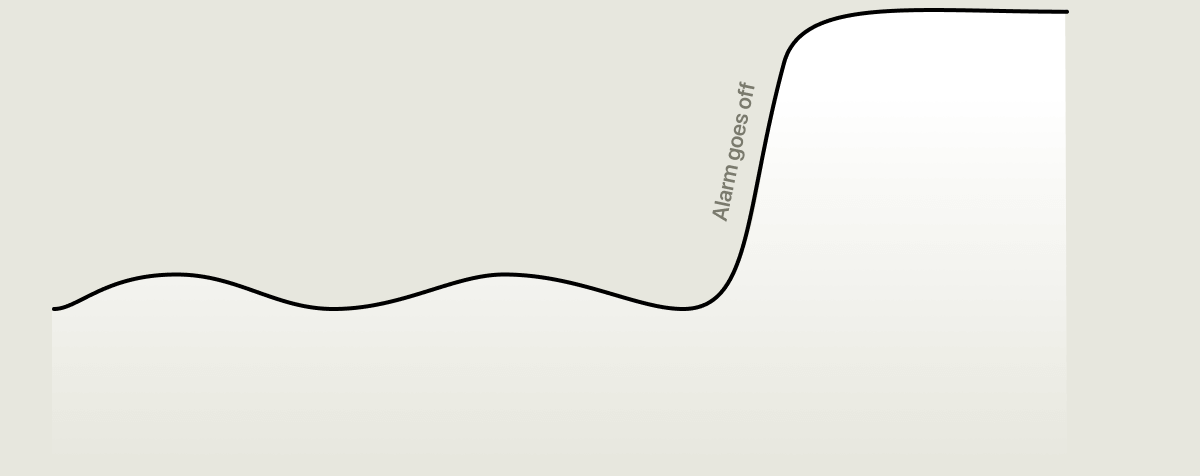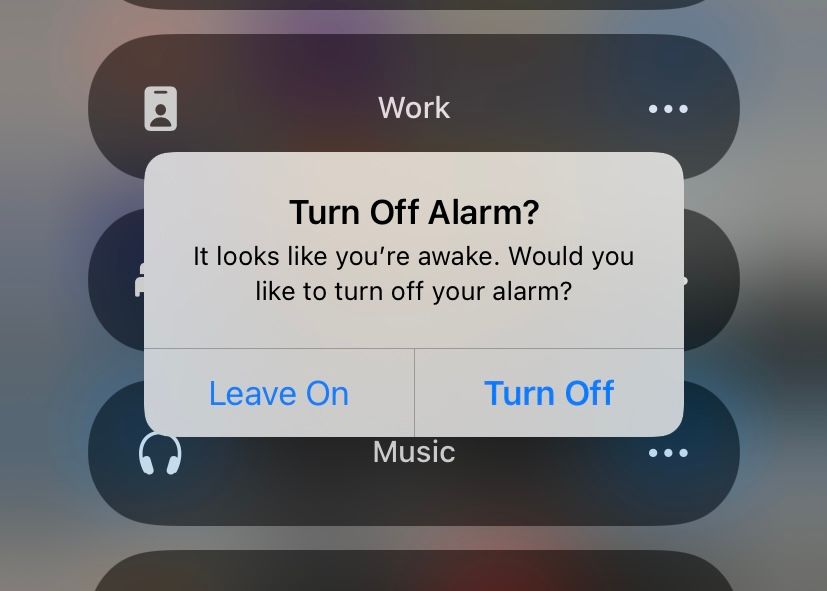It's 6 am. I woke up and could feel my heart racing faster than a Ferrari.
A groggy mind and uneasiness in my body tell me that I'm feeling anxious.
But what could put my body in fight-or-flight mode within a minute of waking up after a good night's sleep?
The infamous alarm clock.
Waking up outside your sleep cycle and to a sharp trill of an alarm clock can elevate stress levels in our body and set us up for a foggy day ahead.
And the problem gets worse if you are a deep sleeper like me and need a loud alarm tone to get you out of dreamland.
I remember days when I jumped up at my alarm's first tone like a firefighter called for duty.
Imagine going from a relaxed pulse rate to one mimicking a stroke.

Repeat this over 100 times, and you can develop serious health problems.
But, here's the thing:
Most of us need an alarm clock to keep us in line with our schedules.
Not everyone has the luxury to wake up naturally whenever their body wants to.
We have commitments like morning routines, a job, children and other reasons to get up at a fixed time every morning.
So, how do we tackle this problem?
By relying on our internal alarm.
Our body's biological clock serves as an alarm that can wake us up gently rather than sounding like a war horn.
And here's how I leverage that alarm:
When I hit the bed and am ready to fall asleep, I think about when I need to wake up.
I visualise a wall clock with the hour and the minute hands showing the time I would like to get up.
For example:
If I have to wake up at 4 am, I will tell my mind that I need to wake up at 4 am and also visualise a clock showing the time as 4 am.
This subtle hint settles into my subconscious and starts an internal timer that goes off around the time I had imagined.
And this phenomenon is not because of forming a habit of waking up at a fixed time every day, day after day.
I've leveraged this technique to wake up at wildly different timings like 2 am, 3:15 am, 7 am and so on.
It always works.
I wake up even before my phone's alarm clock rings:

But:
How does this even work when we're fast asleep?
Unlike our consciousness, the subconscious works round the clock, even when we're asleep.
And around an hour or so before you visualise waking up, your body starts releasing hormones that gently move your body from a state of rest to alertness.
This easing into an alert mode transitions us out of sleep and wakes us up.
Now:
Since this is a gradual wake-up process, it might not precisely wake you up at, say, 6 am.
Sometimes, I wake up 5 mins before my visualised time, and sometimes 30–45 mins before.
So, as a preventive measure:
I set the alarm on my phone as a backup in case I venture too deep into my dreamscapes and fail to wake up within the visualised time.
But thankfully, I've almost always woken up before hearing the sound of my dreadful alarm clock whenever I've used this method.
Our body is an astoundingly complex machine that can perform tasks that otherwise seem like voodoo magic to us.
Try this:
When you hit the hay tonight, tell your mind in all the ways you can the time you want to wake up in the morning.
Visualise the time on a clock, repeat the time in your mind a couple of times, and essentially engrave the time into your subconscious.
Like me, you can set up your phone's alarm as a backup but have at least a 15 mins gap between your visualised time and the alarm time, so you get a chance to wake up before the alarm rings.
Try it out and feel the difference.
You'll wake up more relaxed and energised and not feel like having a mini-stroke in the morning.



 In-depth articles, series and guides
In-depth articles, series and guides
